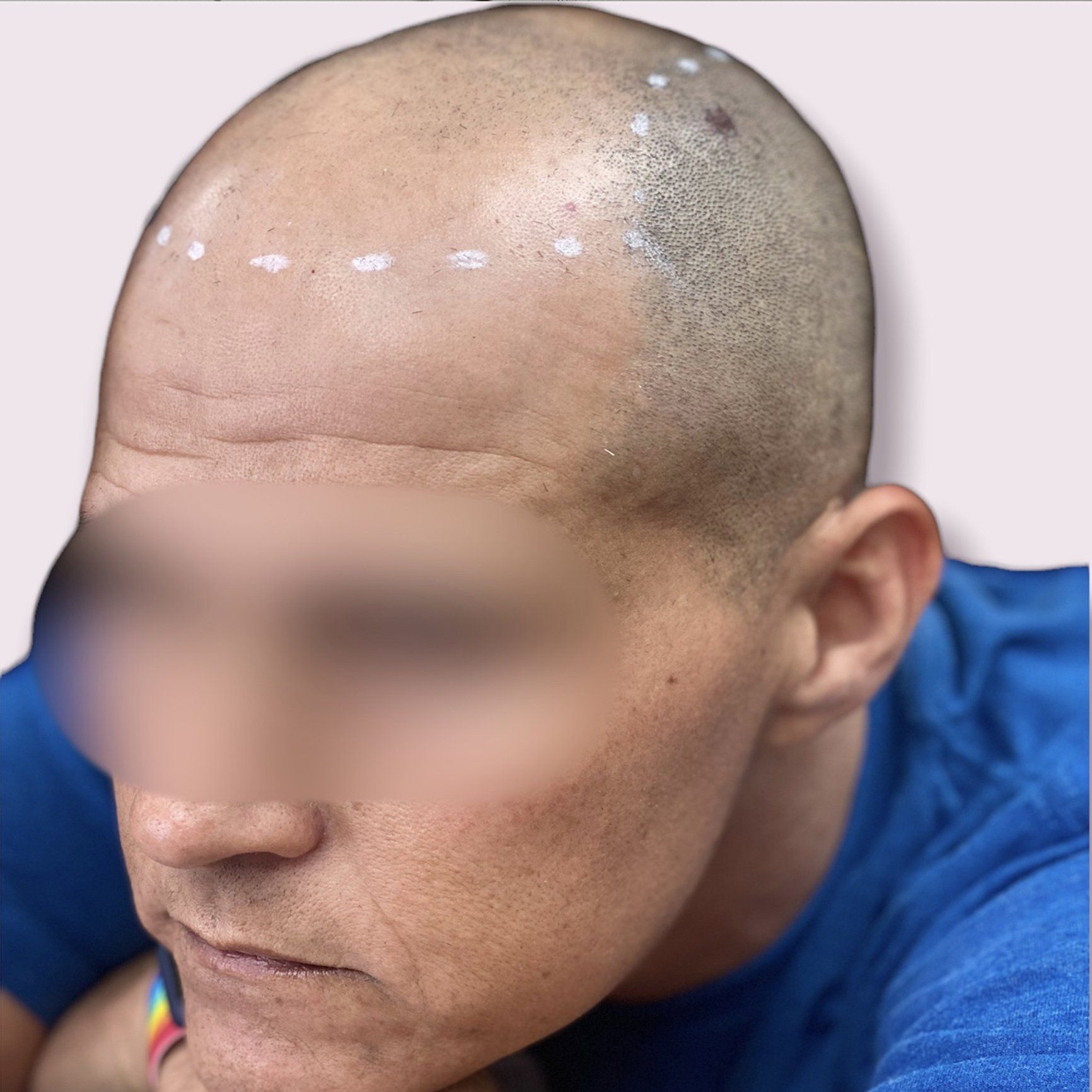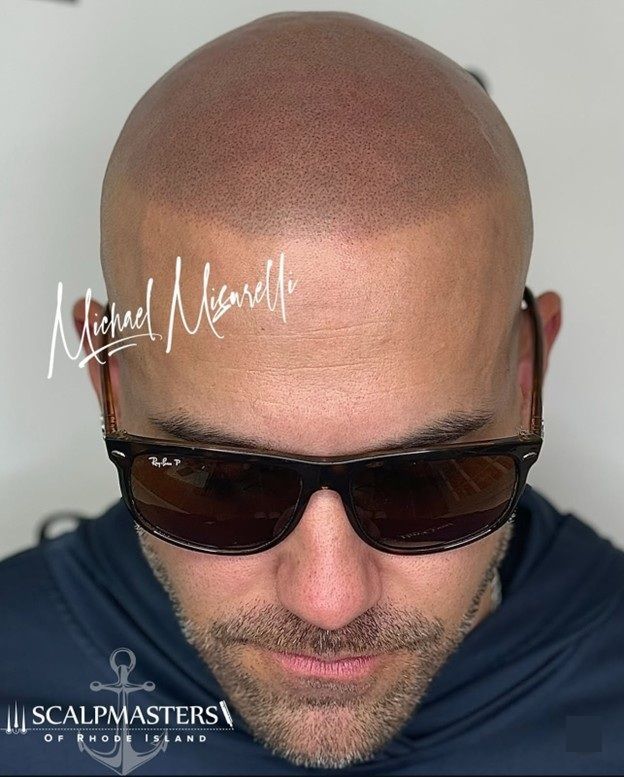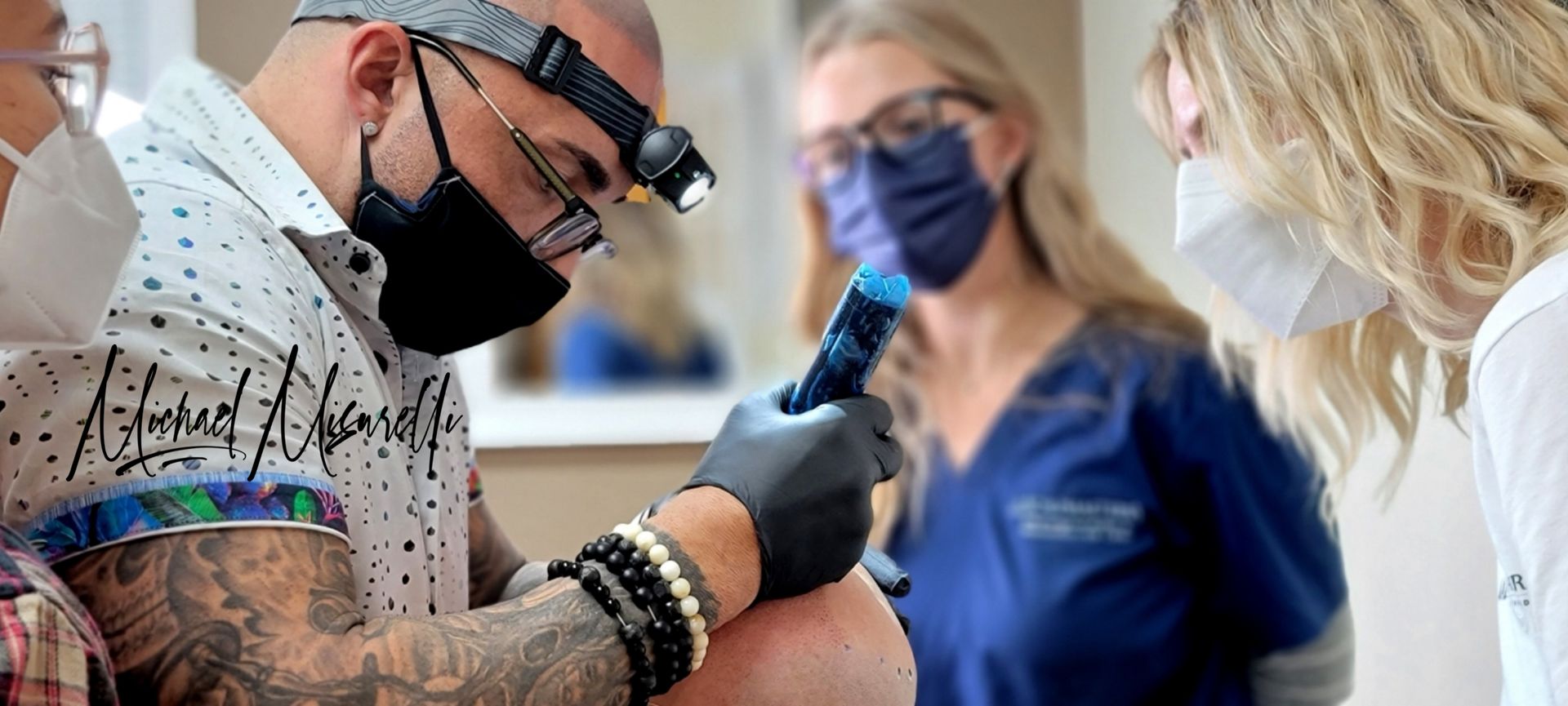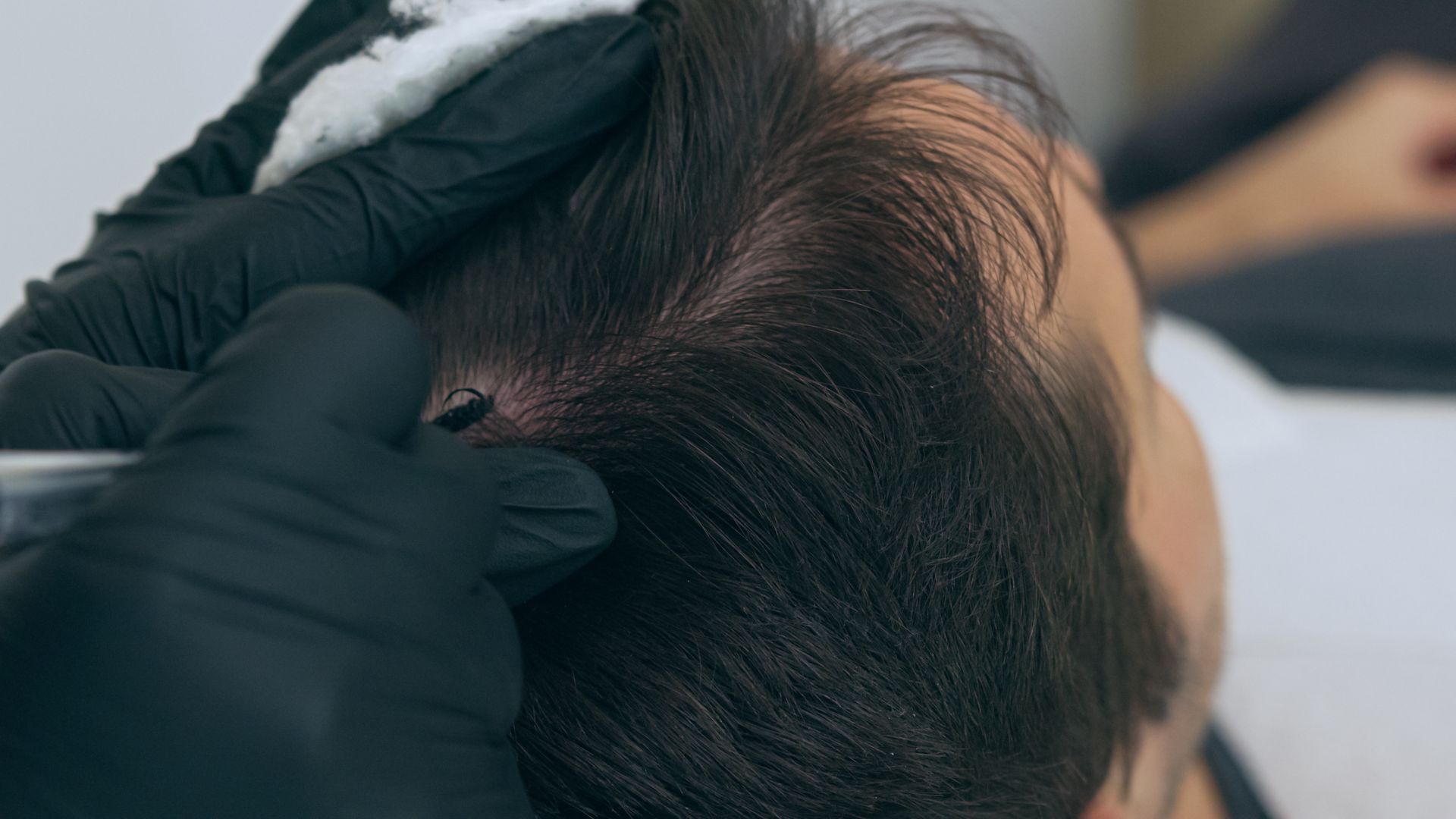Does Creatine Cause Hair Loss? Debunking the Myth
Are you considering taking creatine but worried about the possibility of hair loss? In this blog post, we'll explore the connection between creatine and hair loss and debunk any myths surrounding this topic. We'll also discuss other factors contributing to hair loss so you can make an informed decision about your health and wellness. Keep reading to learn more!
Understanding Creatine
Creatine is a natural substance found in the body that helps produce energy for muscles. It is commonly used as a supplement by athletes and bodybuilders to enhance their performance during high-intensity workouts. However, there have been concerns about the link between creatine and hair loss, with some suggesting that it may cause baldness by converting into DHT (dihydrotestosterone), associated with male pattern baldness.
Creatine supplementation does not cause hair loss, despite common misconceptions.
Despite these claims, no scientific evidence supports that creatine causes hair loss. While creatine can alter hormone levels in the body, research has not shown any direct correlation between creatine supplementation and an increase in DHT production or hair loss. Therefore, those experiencing hair loss should not avoid creatine supplementation out of fear of exacerbating their condition.
What is Creatine?
The History and Discovery of Creatine: Creatine is a naturally occurring compound in muscle tissue compound crucial in energy production. It was first discovered in 1832 by French chemist Michel Eugène Chevreul, who identified the substance as an intermediate product formed during the digestion of meat. Since then, creatine has been extensively studied for its potential benefits to athletes and people looking to build muscle mass.
How Creatine is Produced in the Body
The body synthesizes creatine naturally from three amino acids: arginine, glycine, and methionine. The liver produces about one gram of creatine daily, while another comes from dietary sources like red meat and fish. Once produced or consumed, creatine is stored in muscles as phosphocreatine until it's needed to produce energy.
Different Forms of Creatine and Their Uses
There are several different forms of creatine available on the market today. Some popular options include:
- Creatinol-O-phosphate (COP): Used primarily for improving short-term endurance.
- Kre-Alkalyn: A buffered form designed to improve absorption.
- It has micronized Creatine Monohydrate: A highly absorbable version that may cause less bloating than regular monohydrates.
Each form may have unique benefits depending on individual needs or preferences.
How Does Creatine Work?
Creatine is a naturally occurring compound found in the body that helps to convert food into energy. As a supplement, creatine can also enhance muscle strength and power by altering the body's energy systems. While creatine is safe when used in recommended doses, there are potential side effects associated with its use, including stomach upset and dehydration.
One of the most common concerns regarding creatine supplementation is its link to hair loss. However, research studies have shown no direct relationship between creatine use and baldness or increased levels of DHT (dihydrotestosterone), often cited as a cause of hair loss. Therefore, the myth surrounding creatine-causing hair loss may not hold up under scientific scrutiny.
Hair Loss and Creatine: The Connection
Research has shown no scientific evidence to prove that creatine causes hair loss. Despite some anecdotal claims, studies have found no correlation between the two. Creatine has been shown to positively impact hair growth by promoting healthy blood flow and nutrient delivery to the scalp.
While taking high doses of creatine supplements may lead to dehydration which could indirectly affect hair health, it is essential for individuals experiencing hair loss to focus on other potential causes, such as genetics or hormonal imbalances, before attributing it solely to creatine use.
The Myth of Creatine and Hair Loss
Understanding the origins and prevalence of the myth is crucial when examining claims that creatine causes hair loss. Despite a lack of scientific evidence, this myth has spread widely online due to anecdotal reports and misinformation. It's important to understand that correlation does not equal causation, and many factors contribute to hair loss beyond supplement use.
Examining scientific studies on creatine and hair loss shows no concrete evidence to support the claim. While some studies have suggested a potential link between high testosterone levels (which can be increased through creatine supplementation) and male pattern baldness in genetically predisposed individuals, more research is necessary before making conclusive statements about causal relationships.
Exploring potential factors contributing to hair loss reveals genetics as a major factor alongside nutritional deficiencies. Genetics are responsible for up to 80% of cases of male pattern baldness. At the same time, poor nutrition can lead to conditions like telogen effluvium or alopecia areata, which cause temporary or permanent shedding, respectively. Therefore, those concerned with hair loss should focus on overall health and specific lifestyle changes, such as regular exercise routines, rather than solely blaming supplements like creatine for their condition.
Studies on Creatine and Hair Loss
Reviewing existing studies on creatine supplementation and hair loss, there appears to be no clear evidence of a direct link between the two. Many studies have shown that creatine does not cause hair loss in healthy individuals, but limitations in study design or sample sizes leave room for further investigation.
Analyzing these limitations reveals that many studies were conducted using small sample sizes or lacked control groups, leading to inconclusive results. Additionally, most studies only examined the short-term effects of creatine supplementation on hair health and did not consider other potential factors, such as genetics or underlying medical conditions.
More extensive research with larger sample sizes is needed to understand the potential connections between creatine and hair loss. Future studies should also consider individual differences in response to creatine and investigate long-term effects on overall health and hair health.
Other Factors that Contribute to Hair Loss
Several other factors, including genetics and medical conditions, may contribute to hair loss. Another factor is the use of certain supplements like creatine. However, while some studies have linked creatine to hair loss, insufficient evidence supports this claim.
One lesser-known factor that can contribute to hair loss is poor scalp health. If the scalp is not properly cared for, it can become dry and flaky, leading to inflammation and ultimately damaging the hair follicles. Therefore, maintaining good scalp hygiene through regular washing and exfoliation can help prevent further hair loss.
Hormonal Imbalance
Dihydrotestosterone (DHT) is a hormone that can adversely affect hair growth by shrinking hair follicles in individuals genetically susceptible to male pattern baldness. This hormonal imbalance can cause the hair shafts to become thinner and shorter, leading to hair loss over time. Women may also experience hormonal fluctuations that impact their estrogen levels, which can result in thinning their scalp and body hairs.
Thyroid disorders such as hypothyroidism or hyperthyroidism are associated with hormonal imbalances that may lead to hair loss. When thyroid hormones are unbalanced, it disrupts the normal cycle of scalp follicle growth and shedding resulting in diffuse thinning of the scalp instead of bald patches familiar with male-patterned baldness.
Nutritional Deficiencies
Inadequate protein intake can lead to hair loss, as hair follicles rely heavily on protein for growth. Iron deficiency anemia is also a common cause of hair loss, as it disrupts the natural growth cycle of hair and causes shedding. Similarly, low levels of zinc, biotin, vitamin D, and other micronutrients can contribute to poor hair health and potentially lead to thinning or balding.
Addressing nutritional deficiencies through a well-rounded diet or supplements to support healthy hair growth is essential. Consulting with a healthcare professional or registered dietitian can help identify weaknesses and provide personalized recommendations.
Stress and Anxiety
Telogen effluvium, Alopecia areata, and autoimmune conditions linked to hair loss can all be exacerbated by stress and anxiety. When under chronic or severe emotional strain, the body's natural response focuses on survival mechanisms rather than regular functions such as hair growth. Stress hormones disrupt the normal cycle of follicle regeneration leading to shedding. Hair loss due to stress factors may present up to 3 months after a stressful event.
Here are some ways that stress and anxiety can contribute to hair loss:
- Telogen effluvium: how stress affects the normal hair growth cycle
- The role of fear in triggering or exacerbating autoimmune conditions that lead to hair loss
- Alopecia areata: a disease linked with both genetic predisposition and stress factors
Suffering From Hair Loss? Contact Scalpmasters RI
If you're dealing with hair loss, it's essential to understand the different factors that can contribute to this issue. While genetics and age are common causes of hair loss, other factors such as hormonal changes or medical conditions, can also play a role. At Scalpmasters RI, we offer personalized scalp micropigmentation solutions for individuals struggling with hair loss.
One myth surrounding hair loss is that creatine supplements can cause this issue. However, there isn't enough scientific evidence to support this claim. Instead, it's more likely that other factors, such as stress or nutrient deficiencies, are responsible for your hair loss. Our team at Scalpmasters RI offers scalp micropigmentation treatments to help address these your hair loss needs.
Learn More
What's New
Latest Hair Loss Solutions & Guides





